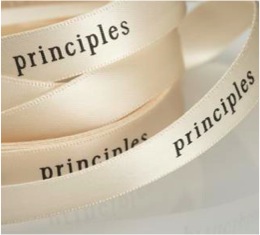 Every family has them. Little rules, proverbs, or general orders that govern everyday life. The Svigel family has several. Hang out with us for a day and you’ll hear at least two or three of them spoken by me, my wife, or sometimes even my kids. I can’t always rest these rules on profound biblical, theological, or philosophical foundations. Instead, we derived them from experience, common sense, and sometimes tradition.
Every family has them. Little rules, proverbs, or general orders that govern everyday life. The Svigel family has several. Hang out with us for a day and you’ll hear at least two or three of them spoken by me, my wife, or sometimes even my kids. I can’t always rest these rules on profound biblical, theological, or philosophical foundations. Instead, we derived them from experience, common sense, and sometimes tradition.
As I’ve thought about the small collection of proverbs or principles that have developed over the last decade or so of parenting, I realize that the good advice that works in the Svigel household can also apply to the household of God. So, in this ten-part series, I’m going to briefly work through ten Svigel family rules, describe how they function to keep my own family healthy and safe, and then discuss how a local church family might benefit from their practical benefits.
Family Principle #1: Use things the way they’re meant to be used.
When followed, this principle can lessen the likelihood of accidents and injuries. Here’s how it works in our family: Imagine your six-year-old grabs a five gallon bucket, turns it over, and tries to use it as a stepping stool to reach a bicycle helmet hanging in the garage. Suddenly the rule kicks in: use things the way they’re meant to be used. Tragedy avoided. Or your ten-year-old can’t find his pocketknife to whittle bark from a branch. Instead, he grabs a pair of scissors, opens it up as wide as it will go, and starts shaving the twig with one blade: use things the way they are meant to be used.
I probably employ this principle several times a day. In a culture in which getting it done faster is more important than getting it done safer . . . or when pragmatism outweighs propriety . . . using things they way they were not meant to be used sometimes becomes the rule. Some might even proudly embrace the rule’s antithesis: “Get it done by whatever means; the more creative the method and outlandish the means, the better!”
In a local church, the “use things the way they’re meant to be used” principle could be applied to solve a host of problems before they even begin. We often use the sacraments as a means of personal devotion rather than as their intended purpose of covenant initiation (baptism) and covenant renewal (communion). As a result we entertain inane ideas like unbaptized church members and online communion. Use things the way they’re meant to be used.
Or we use the pulpit to advance moralism, political and social agendas, or our own celebrity status instead of using it to redirect, reflect, and refocus all attention on the person and work of Jesus Christ and glory of the Triune God. Too often we use the pulpit less as a place where the Word of God is properly proclaimed and more like a place where the preacher’s clever philosophies and edgy opinions are applauded. Use things the way they’re meant to be used.
Instead of using Scripture to point us to the awesomeness of God, the person and work of the Lord Jesus, and the transforming power of the Holy Spirit, we use the Bible to answer questions it was never meant to answer: “How can I have my best, most successful life now?” or “How can I feel better about me?” or “How else can I focus the Bible on me, my personal feelings, my personal welfare, and my general me-ness?” Use things the way they’re meant to be used.
Or sometimes we treat the office of pastor not as the “servant of the servants of God,” whose God-given task is to equip the saints for the work of the ministry (Eph. 4:11ff.), but as the C.E.O. of our own brand of “Church, Inc.” . . . or as the star of our weekly Christian rock concert . . . or as the host of our laid-back, low-demand, Bible-lite, motivational happy hour. Use things the way they’re meant to be used.
Yes, there’s a lot of room in church ministry and worship for freshness, creativity, and thinking outside the box. But there are some things given to the church with divinely-inspired “how-to” and “do not” labels firmly attached—the sacraments, the Bible, the pulpit, the pastoral office, to name just a few. I think the household of God could avoid a lot of problems if they would remember this basic family principle: Use things the way they’re meant to be used.
